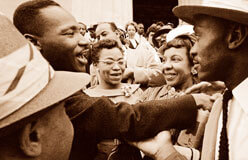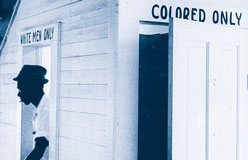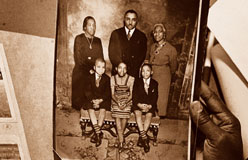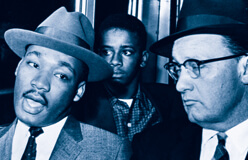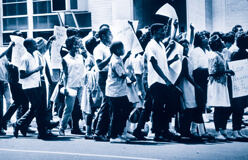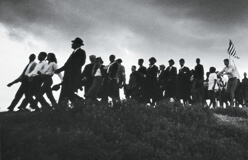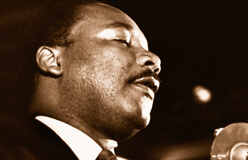Martin Luther King Jr. was born on January 15, 1929, in Atlanta, Georgia. The city was known as the “gateway to the South.”
When he was grown, he wrote that he came from a family “where love was central and where lovely relationships were ever present.” He could never remember his parents fighting. He grew up around people with deep religious beliefs and a great sense of human dignity. His father was pastor of Ebenezer Baptist Church and his mother had been a teacher. Her father had been pastor of Ebenezer before his death. Martin had an older sister, Christine, and a younger brother, A.D.
Martin grew up during the Depression. It was a time when jobs were scarce and many struggled to make a living. His family wasn’t rich, but they were comfortable and had enough to eat. When he was just five years old, he asked his parents why so many people were standing in lines to get food. Later, when he was an adult, he remembered the poverty he had seen.
